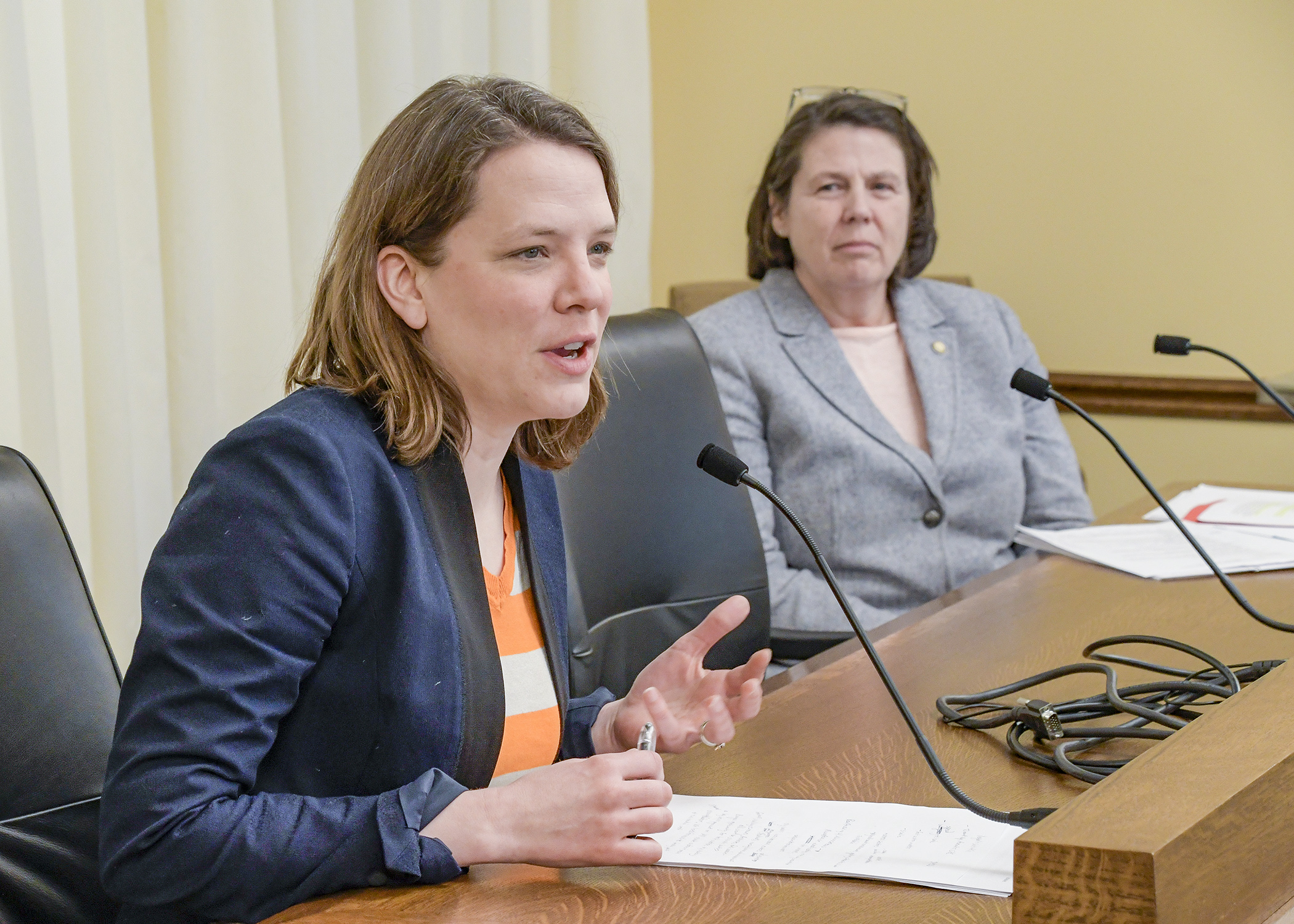Nearly $200 million in grants and rebates focus of climate change proposal

If the process of climate change is to be slowed, should government’s role be top-down or bottom-up?
Rep. Patty Acomb (DFL-Minnetonka) sponsors legislation that takes both approaches simultaneously, offering funds to citizens and schools in order to take action.
HF3436 would establish nine grant programs into which Minnesota residents, companies and school districts could tap in hopes of diminishing the carbon they release into the air and employing renewable energy sources. It also features a pair of rebate programs and a revolving loan fund.
In many respects, Thursday’s meeting of the House Energy and Climate Finance and Policy Division felt like a 90-minute recap of much of what the division passed during 2019. Most of the 16 programs in Acomb’s bill were included in legislation passed by the House last year, only to be left on a conference committee’s cutting room floor.
The bill was laid over for possible inclusion in an omnibus energy and climate bill, but the division chair, Rep. Jean Wagenius (DFL-Mpls), said that each proposal in HF3436 will be introduced as a separate bill in other relevant committees and divisions before coming back to her division.
If taken as a whole, the total price tag for HF3436 would be $191.5 million. Of the projects funded, $85.5 million would be devoted to energy efficiency, $55 million to electric transportation, $26 million to solar energy, $15 million to local government projects, and $10 million to environmental initiatives.
The largest appropriations would be for energy efficiency grants for homeowners ($30 million), public schools ($20.5 million) and nursing homes ($20 million). Also receiving $20 million each would be two grant programs for the purchase of electric buses, one earmarked for schools, the other for mass transit.
 Members and staff of the House Energy and Climate Finance and Policy Division listen to testimony Feb. 20 on HF3436, a bill that would establish various energy grant programs. Photo by Andrew VonBank
Members and staff of the House Energy and Climate Finance and Policy Division listen to testimony Feb. 20 on HF3436, a bill that would establish various energy grant programs. Photo by Andrew VonBankThe bill also includes $16 million in grants for public schools converting to solar power and a $10 million rebate program for homeowners doing the same. Another $15 million would fund rebates for those who purchase electric vehicles. And $15 million would go toward energy efficiency in commercial buildings.
Amendments were defeated that would have provided community energy transition grants and funding for public infrastructure for a business park in Becker that Rep. Shane Mekeland (R-Clear Lake) said has designs on housing a Google data center. While Acomb applauded both initiatives, she recommended they be addressed in other legislation.
After 22 testifiers finished speaking in favor of the bill, the division’s Republican lead, Rep. Chris Swedzinski (R-Ghent), asked Acomb, “What is your estimate, from a scientific perspective, of how this bill will eventually lower temperature or change the environment in the state of Minnesota, if it’s passed?”
Acomb replied, “Do I have the absolute scientific data about doing that? No. We’ve heard over and over again from the scientific community that these are the things we need to do. We need to lower greenhouse gas emissions. We are seeing in our state emergency responses that are needed to help our farmers and resort owners. And these are all impacts from climate change. If we continue to do nothing, it’s going to cost our state a lot of money.”
Related Articles
Search Session Daily
Advanced Search OptionsPriority Dailies
Ways and Means Committee OKs proposed $512 million supplemental budget on party-line vote
By Mike Cook Meeting more needs or fiscal irresponsibility is one way to sum up the differences among the two parties on a supplemental spending package a year after a $72 billion state budg...
Meeting more needs or fiscal irresponsibility is one way to sum up the differences among the two parties on a supplemental spending package a year after a $72 billion state budg...
Minnesota’s projected budget surplus balloons to $3.7 billion, but fiscal pressure still looms
By Rob Hubbard Just as Minnesota has experienced a warmer winter than usual, so has the state’s budget outlook warmed over the past few months.
On Thursday, Minnesota Management and Budget...
Just as Minnesota has experienced a warmer winter than usual, so has the state’s budget outlook warmed over the past few months.
On Thursday, Minnesota Management and Budget...